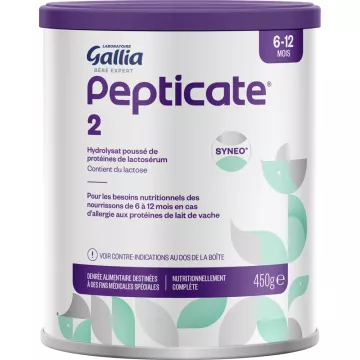

What is basic infant care?
Basic infant care includes feeding, hygiene, sleep and health monitoring. It is essential to feed the baby on demand or according to the pediatrician's recommendations, especially if you opt for breastfeeding or infant milk. Creating a calm, reassuring environment encourages restful sleep, which is crucial to baby's development. Regular bathing is also essential, using gentle products specially designed for baby's sensitive skin.
How to feed a baby effectively?
A baby's diet must be adapted to his evolving needs. For the first few months, we recommend breast-feeding or infant milk. Breastfeeding provides all the necessary nutrients and strengthens the bond between mother and child. If breast-feeding is not possible, enriched infant formulas may be suitable, to be chosen on the advice of a paediatrician. From 6 months onwards, the gradual introduction of solids completes his diet.
What are the best practices for infant sleep?
For a safe night's sleep, babies should sleep on their backs, in a cradle with no unnecessary objects that could present a choking hazard. The room should be at a comfortable temperature, between 18 and 20°C. Avoid loud noises and bright lights, to promote a regular, restful sleep cycle.
How to detect and treat common infant illnesses?
Parents should be alert to the signs of common illnesses such as colds, gastroenteritis and skin rashes. A change in sleeping habits, eating habits or a feverish state may indicate an illness. Consult a paediatrician as soon as possible for a precise diagnosis and appropriate treatment. Prevention also involves regular vaccinations, as recommended by the health authorities.
How important are vaccinations for an infant?
Vaccinations are crucial to protect infants against serious and potentially fatal diseases. The immunization schedule generally begins at 2 months of age, and protects against diphtheria, tetanus, whooping cough and polio, among others. These vaccines are essential for the development of a robust immune system.
What are the signs of normal infant development?
It's crucial to monitor key developmental milestones to ensure that an infant is growing in a healthy way. These signs include head lifting, social smiling at around 2 months, the ability to grasp objects at around 3-4 months, and the first babbles. Around 6 months, he can begin to roll over and sit up with support. Any delay or absence of these signs should be discussed with a paediatrician.
How to choose the right baby care products?
Choosing the right care products for an infant requires special attention. Choose hypoallergenic products with no artificial fragrances to avoid skin reactions. Shampoos, lotions and detergents for babies must be gentle and dermatologically tested. It is also advisable to consult health professionals before introducing a new product into your baby's care routine.
How to manage teething in infants?
Teething can be a difficult period, usually starting around 6 months. Signs include irritability, refusal to eat, and a tendency to chew. To relieve the pain, you can use refrigerated teething rings, apply an infant-specific gum gel, or gently massage the gums with a clean finger. If the pain persists, a paediatrician can recommend a suitable analgesic.
How important is reading to an infant 's development?
Reading to an infant stimulates language and emotional development. Start reading simple books with colorful pictures and varied textures from the very first months. This helps develop cognitive skills, word comprehension and attention. Regular reading also creates a special moment between parent and child, strengthening their emotional bond.
How to prepare and secure the home for an infant?
Securing the home is essential as soon as an infant arrives. This includes installing safety gates on stairs, fitting electrical outlet covers, and locking cabinets containing hazardous substances. Make sure toys and furniture are safe from pinching and tipping. Room temperature should be kept between 18 and 20°C to ensure comfort and safety.